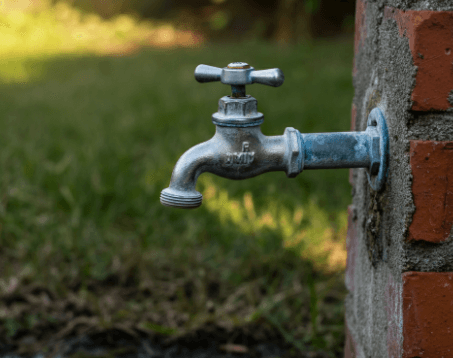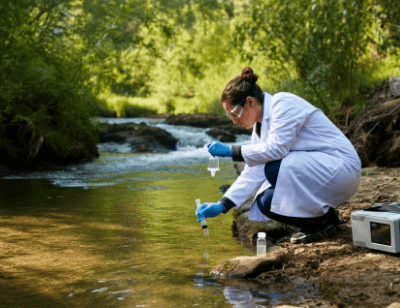Access to clean and dependable water is paramount, yet only some enjoy the convenience of municipal water supply systems. In Florida, many residents fall into this category—people with no access to a public water supply must find alternative ways to obtain water for their homes. These individuals often turn to private wells and rainwater collection systems or buy water from private suppliers to meet their daily needs. Read on as we explore the various methods and challenges faced by people with no access to a public water supply in Florida, shedding light on how they secure this essential resource.
Real estate investors like Steve Daria and Joleigh often encounter properties that need access to public water supplies. Solutions such as drilling private wells or installing rainwater collection systems are commonly considered for these properties. Steve and Joleigh emphasize that understanding these alternatives is essential for individuals investing in real estate in areas without municipal water services.
Understanding the Scope of the Issue
In parts of Florida, especially in rural or undeveloped areas, there may be people with no access to a public water supply for their homes.
This situation can arise for various reasons, such as the absence of nearby water infrastructure or the high costs associated with extending public water lines to remote locations.
For real estate investors and land buyers, understanding this limitation is crucial before making a purchase.

The Impact on Real Estate Investments
Lack of access to public water can significantly impact the attractiveness and value of a property.
Investors must weigh the costs and benefits of developing alternative water sources against the potential return on investment.
Properties without public water access might require additional expenditures for installing wells or water storage systems, which could influence the overall profitability of the investment.
Evaluating Property Viability
Before committing to buying land or a home without access to public water, it’s essential to evaluate the property’s long-term viability.
Consider factors like the availability of groundwater, the costs of drilling a well, and the quality of alternative water sources.
Consulting with local experts and conducting a thorough water source assessment can provide valuable insights into the feasibility of the property.
Get Started: Get Your Cash Offer Below…
We are direct land buyers. There are no commissions or fees and no obligation whatsoever. Start below by sharing where your property is and where we can send your offer…
Alternative Water Sources
How do people with no access to a public water supply obtain water for their homes?
Here are the alternative methods of water acquisition:
Drilling a Well
One of the most common solutions for homes without access to public water in Florida is drilling a private well.
This involves tapping into underground aquifers to access groundwater.
While the upfront costs can be substantial, wells can provide a reliable and long-term water supply.
It’s essential to conduct geological surveys to ensure the presence of sufficient groundwater and comply with local regulations.
Rainwater Harvesting
Rainwater harvesting is another viable option for homes with no public water supply.
This method includes collecting and storing rainwater for various household uses.
Putting a rainwater harvesting system requires careful planning, including the design of collection surfaces, storage tanks, and filtration systems.
Water Delivery Services
For some homeowners, relying on water delivery services might be the most practical solution.
These services deliver potable water to homes on a regular basis, ensuring a consistent supply.
While this option involves ongoing costs, it can be a convenient and hassle-free way to accumulate water without the need for extensive infrastructure investments.
Legal and Regulatory Considerations
How do people with no access to a public water supply obtain water?
Explore the legal and regulatory considerations when finding alternative ways:
Permits and Regulations
When exploring alternative water sources, it’s crucial to understand the legal and regulatory requirements in Florida.
Drilling a well or making a rainwater harvesting system may require permits and adherence to specific guidelines.
Working hand in hand with professionals who are knowledgeable about local regulations can help ensure compliance and avoid potential legal issues.
Environmental Impact
It’s also important to consider the environmental impact of alternative water sources.
Excessive extraction of groundwater can lead to a decrease in aquifers and negatively affect the surrounding ecosystem.
Implementing sustainable practices, like water conservation measures and regular monitoring of water levels, can help mitigate these impacts.
Property Disclosure Requirements
When selling a property without access to public water, it’s essential to disclose this information to potential buyers.
Transparency about the water sourcing challenges can prevent future disputes and ensure that buyers are fully informed about the property’s limitations.
Providing documentation about existing water sources and any permits obtained can also build trust and credibility with buyers.
Practical Tips for Homeowners
Here are the practical tips for homeowners experiencing the situation:
Conducting Water Quality Tests
Homeowners should invest in water testing kits or hire professionals to conduct comprehensive water quality assessments.
Testing for contaminants, like bacteria, heavy metals, and chemicals, can help determine any potential health risks and guide necessary treatment measures.

Implementing Water Conservation Practices
Conserving water is essential, especially when relying on alternative sources.
Homeowners can implement various water-saving practices, such as fixing leaks, using low-flow fixtures, and practicing mindful water usage.
Additionally, landscaping with native plants and using drip irrigation systems can reduce outdoor water consumption.
Maintaining Water Infrastructure
Proper maintenance of water infrastructure is key to ensuring a consistent and reliable water supply.
Regularly inspecting wells, storage tanks, and filtration systems can help identify and address possible issues before they escalate.
Scheduling routine maintenance and repairs with qualified professionals can prolong the lifespan of water infrastructure and prevent disruptions.
Advantages and Disadvantages of Alternative Water Sources
How do people with no access to a public water supply obtain water?
Explore the advantages and disadvantages of alternative water sources to make informed decisions.
Benefits of Private Wells
- Reliability: Private wells can provide a consistent and independent water supply.
- Cost-Effective: Once installed, wells have lower ongoing costs compared to water delivery services.
- Property Value: Having a well can increase the value of a property by providing a self-sustaining water source.
Drawbacks of Private Wells
- Upfront Costs: Drilling a well involves significant initial investment.
- Maintenance: Wells require regular maintenance and monitoring to ensure water quality and functionality.
- Environmental Concerns: Over-extraction of groundwater can lead to ecological imbalances.
Benefits of Rainwater Harvesting
- Sustainability: Rainwater harvesting is an eco-friendly and renewable water source.
- Cost Savings: Reduces dependency on public water systems and lowers water bills.
- Versatility: Harvested rainwater can be used for different non-potable applications, such as irrigation and cleaning.
Drawbacks of Rainwater Harvesting
- Inconsistent Supply: Rainwater availability depends on weather conditions.
- Initial Costs: Setting up a rainwater harvesting system requires an initial investment.
- Storage and Treatment: Requires proper storage and filtration to ensure water quality.
Conclusion
Living without access to a public water supply for homes in Florida presents unique challenges and opportunities. By understanding the available options, legal considerations, and practical tips, homeowners and real estate investors can make informed decisions and successfully manage their water needs.
Whether you choose to drill a well, implement rainwater harvesting, or rely on water delivery services, it’s essential to prioritize water quality, sustainability, and compliance with regulations. With the right approach, you can overcome the difficulties of living without public water and enjoy the benefits of self-sufficient water sourcing.
**NOTICE: Please note that the content presented in this post is intended solely for informational and educational purposes. It should not be construed as legal or financial advice or relied upon as a replacement for consultation with a qualified attorney or CPA. For specific guidance on legal or financial matters, readers are encouraged to seek professional assistance from an attorney, CPA, or other appropriate professional regarding the subject matter.
